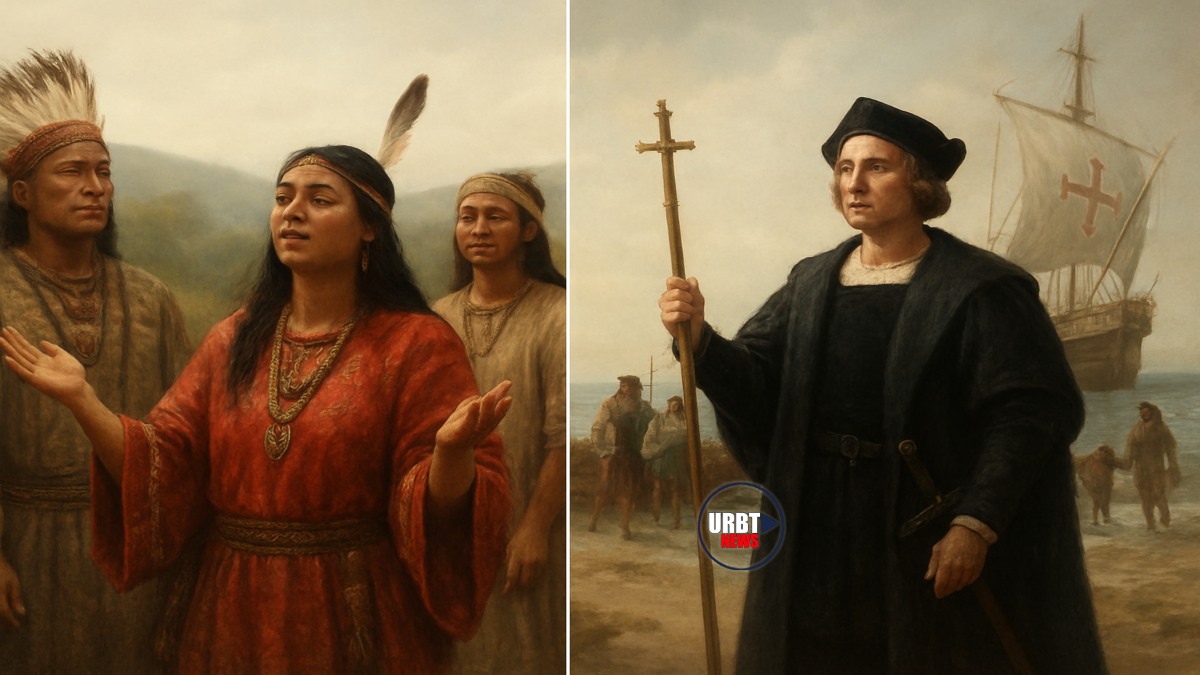Published
5 months agoon

Columbus Day and Indigenous Peoples’ Day What You Need to Know. Columbus Day, a federal holiday in the United States, has been a subject of increasing debate and reevaluation in recent years. While it has historically been a day to celebrate Christopher Columbus’s arrival in the Americas and to honor Italian-American heritage, it also coincides with a growing movement to recognize and honor Indigenous Peoples’ Day. This shift shows that people now understand history more deeply and intentionally acknowledge the lasting effects colonization had on Native American communities.
Overview
Columbus Day officially became a national holiday in 1937. Its establishment was, in part, a response to discrimination faced by Italian-Americans, offering them a source of pride and recognition within American society. For many, it remains a day to celebrate their heritage and the contributions of Italian-Americans to the nation. The Tammany Society organized the first celebration in 1792 in New York City.
However, the narrative surrounding Columbus has become increasingly complex. His arrival in the Americas marked the beginning of European colonization, which led to the displacement, exploitation, and decimation of Indigenous populations. As awareness of this history has grown, so too has the movement to replace Columbus Day with Indigenous Peoples’ Day.
Indigenous Peoples’ Day is a holiday that celebrates and honors Native American peoples and commemorates their histories and cultures. It falls on the same day as Columbus Day, October 14th, 2024. It also serves as a counter-narrative to the traditional Columbus Day celebration. Many acknowledge the painful legacy of colonization. It’s also about creating an opportunity to reflect on the resilience and lasting contributions of Native American communities.
The movement to replace Columbus Day with Indigenous Peoples’ Day began in the late 20th century. South Dakota was the first state to officially celebrate Native American Day in 1990. Now numerous cities, states, and even some federal entities have adopted Indigenous Peoples’ Day, either as a replacement for or in addition to Columbus Day. This reflects a growing recognition of the need to acknowledge and address the historical injustices faced by Native Americans. Many argue that celebrating Columbus perpetuates a harmful narrative that ignores the suffering caused by colonization.
Columbus Day is a federal holiday. This means that the federal government closes its offices, and federal employees typically take a paid day off. Banks may also be closed. It is important to note that private businesses do not have to provide Columbus Day as a paid holiday. Whether or not you have the day off work depends on your employer’s policies. Many private companies remain open on Columbus Day.
The debate surrounding Columbus Day and Indigenous Peoples’ Day is likely to continue as society grapples with its historical legacy and strives to create a more inclusive and equitable future. Understanding the historical context and the perspectives of different communities is essential for navigating this complex issue. Recognizing Indigenous Peoples’ Day alongside, or in place of, Columbus Day is one step towards acknowledging the full scope of American history and honoring the contributions of all its people.
Columbus Day | Indigenous Peoples’ Day | Native American | Christopher Columbus | federal holiday | paid holiday | colonization | history | debate | social justice
Columbus Day is a federal holiday in the United States that traditionally commemorates Christopher Columbus’s arrival in the Americas.
Indigenous Peoples’ Day is a holiday that celebrates and honors Native American peoples and commemorates their histories and cultures. It is often celebrated on the same day as Columbus Day.
No, Columbus Day is a federal holiday, meaning federal employees typically get a paid day off. However, it is not a mandatory paid holiday for all private businesses.
Columbus Day is controversial because Christopher Columbus’s arrival in the Americas marked the beginning of European colonization, which led to the displacement, exploitation, and decimation of Indigenous populations.
People support Indigenous Peoples’ Day as a way to acknowledge the painful legacy of colonization and to recognize and honor the contributions and resilience of Native American communities.
ColumbusDay #IndigenousPeoplesDay #History #NativeAmericanHeritage #FederalHolidays #SocialJustice #Debate #URBTNews
